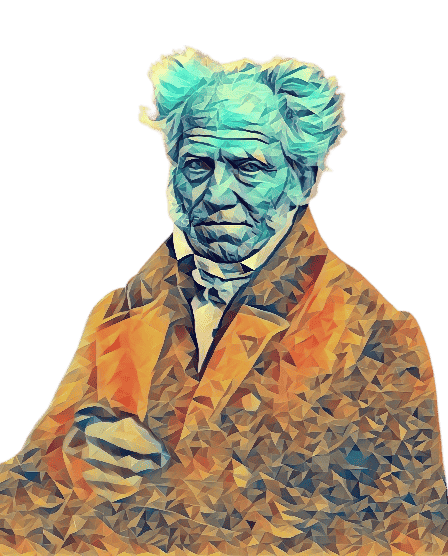Alan Watts, Schopenhauer and the universe that experiences itself
Alan Watts is known for his interpretation and integration of Eastern philosophies into Western thought. A good example of this is the following view, which is strongly influenced by Eastern thought, particularly Buddhism, and, interestingly, has certain similarities with Schopenhauer's philosophy despite the different contexts and conclusions.
"Through our eyes, the universe is perceiving itself. Through our ears, the universe is listening to its harmonies. We are the witnesses through which the universe becomes conscious of its glory, of its magnificence."
"Through our eyes, the universe perceives itself. Through our ears, the universe listens to its harmonies. We are the witnesses through whom the universe becomes aware of its glory, its magnificence."
Alan Watts
Alan Watts argued that individual consciousness is not an isolated phenomenon, but an expression of the process of self-awareness of the entire universe. In his view, each individual is essentially the entire universe observing and experiencing itself from a particular point in space and time.
This idea reflects a non-dualistic understanding of reality, in which the separation between the self and the world is an illusion. Watts drew heavily on Hinduism, Buddhism and Daoism, all of which express a deep interconnectedness of all things and the illusion of the self as a separate being.
We remember: Schopenhauer's philosophy assumes that the world is a representation formed by the will, which is the true essence behind the phenomena. His understanding of reality also points to a form of interconnectedness, with the will acting as the fundamental force that connects all beings.
Schopenhauer's view, however, is rather pessimistic and emphasizes the blind striving of the will and the suffering it causes. Nevertheless, his engagement with Eastern philosophies, particularly Buddhism, suggests that he recognizes the illusionary aspects of the world and has a desire to overcome the suffering that accompanies the expression of will.

Both Watts and Schopenhauer draw heavily on Buddhist concepts, particularly the idea of interconnectedness and the illusory nature of the self. They assume that the apparent separation between the self and the world is a misperception, although they approach this conclusion from different angles.
For Watts, this realization is a reason to enjoy and an invitation to experience life to the fullest, knowing that we are an expression of the dynamics of the universe. While Schopenhauer recognizes the illusory separation between individual wills, he sees this realization as a way to negate the will and thus reduce suffering.
Perhaps the most striking difference between Watts and Schopenhauer lies in their attitudes towards the nature of existence and the implications of their philosophies. Watts takes an optimistic view of life and encourages people to embrace their identity as the self-experiencing universe and to live in harmony with this understanding.
Schopenhauer, on the other hand, takes a pessimistic stance in that he sees the suffering of life as inherent in the will and the ultimate goal is the cessation of the will and thus of suffering - but even he is not a complete pessimist, as he knows and appreciates beauty and does not dismiss existence as hopeless. As we have already learned, he was also devoted to art, nature and the world.

Comparing the philosophy of Alan Watts and Schopenhauer reveals a fascinating intersection of Eastern and Western thought, as both philosophers interpret the concepts of interconnectedness and the nature of the self in different but complementary ways. Although they appreciate the Buddhist insights into reality and the self, they diverge in their interpretation of what these insights mean for human experience.
Watts sees in these ideas a liberating truth that can improve our approach to life, while Schopenhauer finds a way to detach from the ceaseless striving of life. Together, their philosophies offer a rich tapestry of thought about the nature of consciousness, the universe, and our place in it, inviting the reader to explore the depth and breadth of human understanding across cultures and philosophies.
If you would like to find out more about Alan Watts, you can find a biographical article here.







